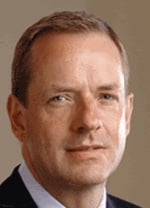GlaxoSmithKline's ($GSK) controversial overhaul of sales-rep compensation is due for some tweaks. After replacing its North American president earlier this year, the company has decided to revisit its so-called Patient First sales model, which pegs incentive pay to broad sales and performance goals rather than individual quotas.
The drugmaker has set up a task force to come up with a "simplified" version of Patient First, Bloomberg reports, citing an internal memo circulated at the company. And in the meantime, the old version is going on hiatus. The U.S. sales staff will automatically get their target bonus for a portion of the year while the task force evaluates the current compensation system.
GSK's U.S. sales have been floundering, as aging Advair succumbs to competition from head-to-head rivals and newer meds. Meanwhile, the company's new batch of respiratory treatments has been slow to gain traction--Anoro and Breo brought in a combined £84 million last year, worldwide--and some pharma types have blamed GSK's shift away from individual sales targets.
 |
| GSK CEO Andrew Witty |
CEO Andrew Witty points to recent upticks in prescriptions for Anoro and Breo--plus the recent rollouts of Incruse Ellipta for COPD and Arnuity Ellipta for asthma--as reasons for optimism about the respiratory franchise. And it's true that more than half of each drug's 2014 sales came in the fourth quarter. But Advair brought in £4.23 billion ($6.2 billion) in 2014 sales, and those are big shoes to fill. As the compensation review shows, GSK is looking for ways to make sure that its sales reps are on task.
"This pause allows us to concentrate our attention on program improvements to be implemented in the second semester," Glaxo told employees in the internal memo obtained by Bloomberg. "Until then, it is critical that our focus be on driving performance, and that we use the removal of the simulations to increase business performance."
Meanwhile, GSK has been cutting costs to compensate for Advair's precipitous slide. The company had expected competition from knockoffs in Europe, where inhalers from Novartis ($NVS) and Teva Pharmaceutical ($TEVA) have hit the market. So far, those products can't be automatically substituted for GSK's product, which has limited the decline. But investors--if not GSK executives--were blindsided last year by the U.S. sales problems, triggered in part by aggressive competition from AstraZeneca's ($AZN) rival drug Symbicort.
Since then, GSK has taken steps to give Advair and its follow-ups a leg up. The company negotiated more favorable formulary placement for 2015, for instance, and the drugs have won improved access from a variety of payers, including Medicare. That's one reason why Witty could point to an increase in market share for Anoro and Breo on a recent investor call.
And last month, Breo won FDA panel backing for a new use in asthma, which would add a big group of potential patients. Unfortunately, the panel only recommended approval for adults with asthma, which would cut out the lucrative pediatric market if the agency follows its advisory committee's lead.
- read the Bloomberg story
Special Reports: The top 15 companies by 2014 revenue - GlaxoSmithKline | The 10 best-selling drugs of 2013 - Advair/Seretide